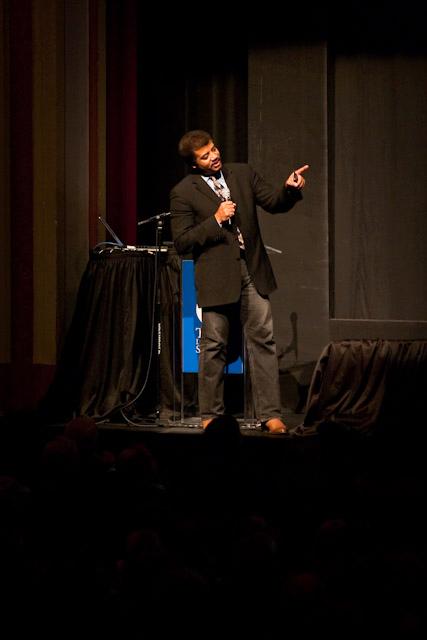
Neil deGrasse Tyson discusses decline of scientific achievements in the U.S. (Spencer J Eggers/The Daily Campus)
Noted astrophysicist Neil deGrasse Tyson emphasized the importance of science and mathematics education in America as he entertained Tuesday’s sold-out McFarlin Auditorium for the Jones Day lecture of the SMU Tate Lecture Series.
Tyson’s presentation was a “wake-up call” about America’s fading place on the cutting edge of engineering and technology worldwide.
In the early 1990s, America was poised to open the most powerful particle accelerator ever conceived just south of Dallas in Waxahachie, Texas. Tyson was a member of the project team. But Congress scrapped the project due to budgetary issues. A smaller facility known as CERN is now located in Switzerland; American scientists must go there to use it.
America is the new kid on the block, and our influence in the scientific community is relatively weak. Words like “algebra” and “algorithm” have Arabic roots. British and German scientists have discovered the most elements on the periodic table.
And annually, U.S. universities graduate just a tenth the number of scientists and engineers coming out of Chinese universities. Instead, we produce lawyers, doctors and physical therapists, Tyson said.
The deficit in science and mathematics education in the U.S. is partly a result of Americans’ lack of comfort with either. Tyson highlighted several examples of our irrational superstition and woeful illogic, including the omission of the 13th floor in tall buildings and the misuse of simple mathematical principles in everyday language.
To become competitive again, America must embrace engineering and celebrate science and mathematics as other nations do, Tyson said.
Encapsulating his passion for physics and astronomy Tyson left the audience with the following statement: “It’s not simply that we are in the universe. The universe is in us.”








